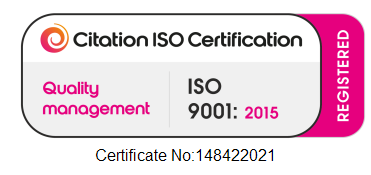When running a clinical trial, one unexpected failure can disrupt data collection, delay outcomes, and compromise compliance. Among the most underestimated risks is device battery performance. In fact, research shows that nearly 18% of protocol deviations stem from device issues, and weak battery life is a key contributor—especially in remote or long-duration studies.
At STK, we design our 5000 mAh eCOA smartphones and rugged tablets to deliver reliability, compliance, and AI-ready data capture, ensuring battery performance never puts your trial at risk.
Why Battery Life Matters in Clinical Trials
1. Preventing Data Loss and Delays
Short battery life leads to device shutdowns mid-assessment, causing data gaps and increased site workload. Reliable 5000 mAh batteries minimise these risks.
2. Supporting Remote and Decentralised Trials
In decentralised trials, participants and clinicians rely on devices for continuous data collection. Weak batteries can compromise remote patient monitoring. STK’s Titan 5 rugged device ensures consistent performance in challenging environments.
3. Enhancing Patient Engagement
Patients are less likely to comply if their device constantly needs charging. Extended battery life keeps participation smooth, reducing trial dropout rates.
4. Meeting Compliance and Quality Standards
Regulators such as FDA, EMA, and MHRA expect complete datasets with minimal deviations. By eliminating power-related gaps, STK devices ensure regulatory-ready trial data.
Comparing Battery Capacities in Trial Devices
|
Battery Capacity |
Typical Usage |
Risk in Trials |
Best Fit |
|
4000 mAh |
Basic consumer smartphones |
High risk of mid-trial failure |
Not recommended for trials |
|
5000 mAh |
Clinical trial smartphones (STK X4) |
Reliable full-day usage, supports eCOA apps |
Ideal for ePRO and eClinRO |
|
6000 mAh+ |
Rugged tablets (STK Tough Tab) |
Extended use in remote monitoring |
Best for ePerfO and decentralised studies |
Real-World Impact of Battery Reliability
-
A global CRO reduced downtime by 27% after adopting STK 5000 mAh smartphones for oncology trials.
-
Patient compliance improved by 20% in decentralised studies due to reduced charging needs.
-
Site staff workload dropped 15%, as fewer devices required mid-study replacement.
How STK Ensures Long-Term Battery Reliability
-
5000+ charge cycles tested for durability.
-
ISO-certified design and manufacturing processes.
-
Smart power management for continuous AI-ready data capture.
-
Global support and warranties, ensuring trials never stall due to power issues.
Explore STK custom trial solutions to ensure your study devices meet every power and compliance standard.
Frequently Asked Questions (FAQs)
Why is battery life important in clinical trial devices?
Reliable battery life prevents device shutdowns, ensuring accurate, complete, and compliant trial datasets without costly disruptions.
What is the ideal battery size for eCOA smartphones?
A minimum of 5000 mAh is recommended for clinical trial smartphones to support full-day usage, eCOA apps, and remote patient monitoring.
How do remote trials manage device battery challenges?
Decentralised trials require long-lasting devices. STK’s Titan 5 rugged device ensures continuous data collection even in challenging environments.
How does STK ensure long-term battery reliability?
All devices undergo rigorous testing for 5000+ charge cycles, feature smart power management, and include warranties for global deployments.
Can STK devices integrate with AI platforms while maintaining battery efficiency?
Yes. STK devices are designed for AI-ready data capture, optimising power usage without compromising compatibility with predictive modelling or advanced analytics.


